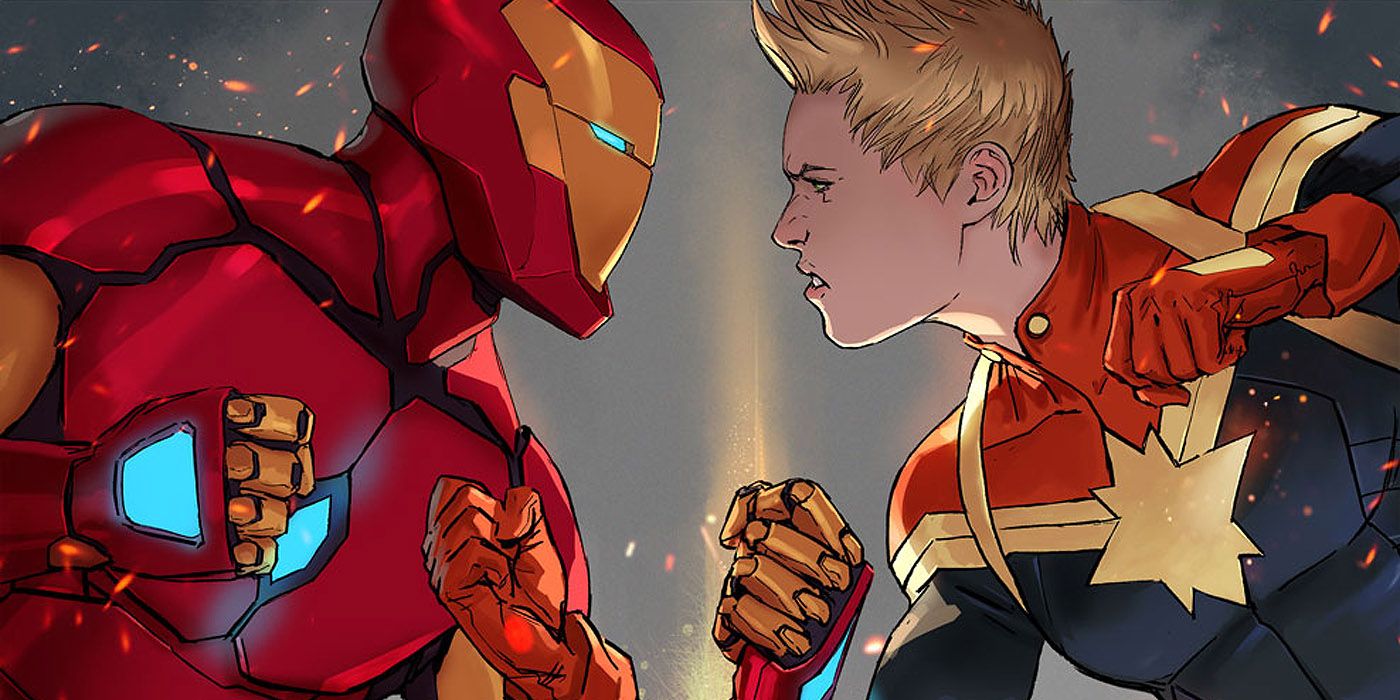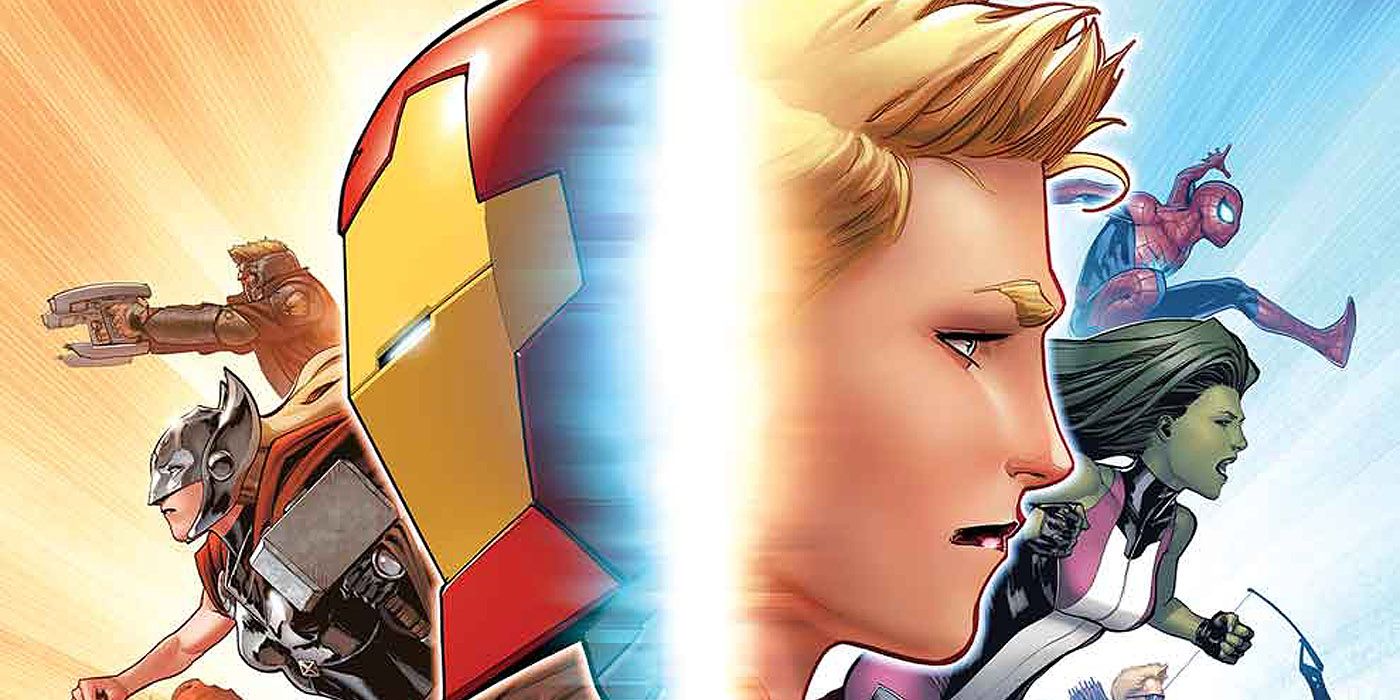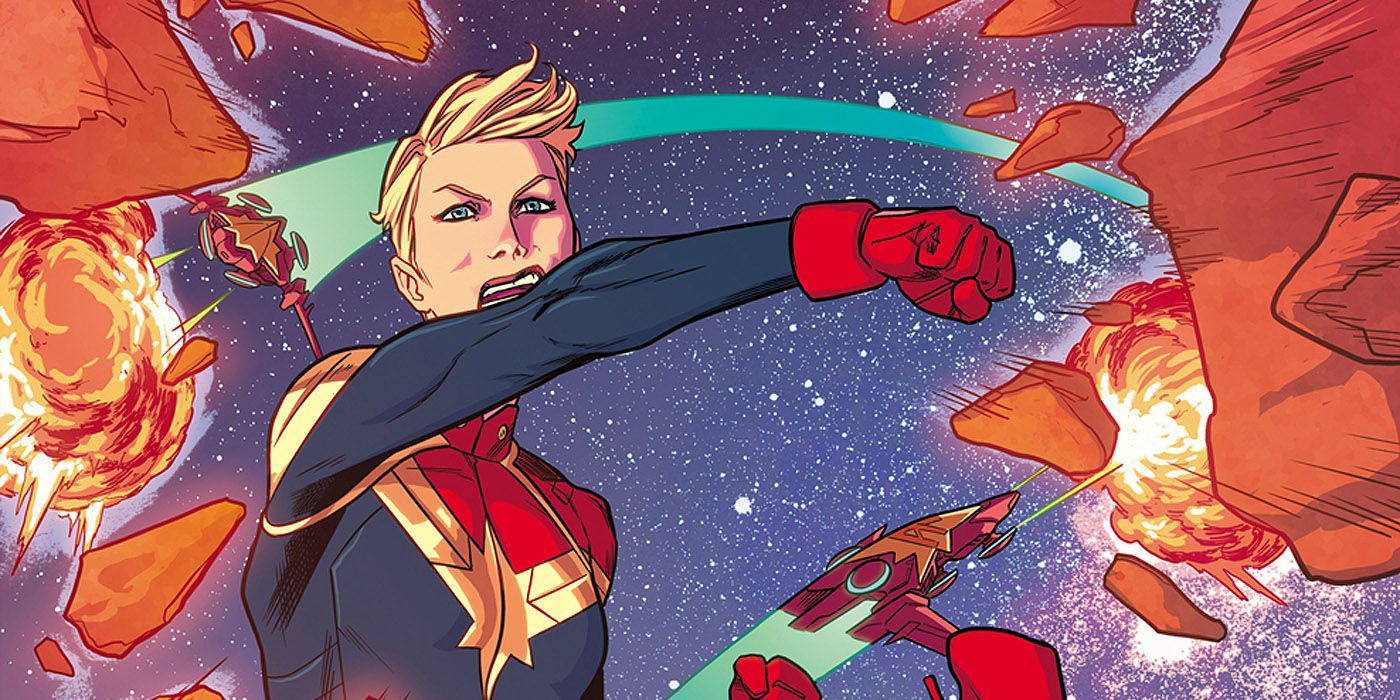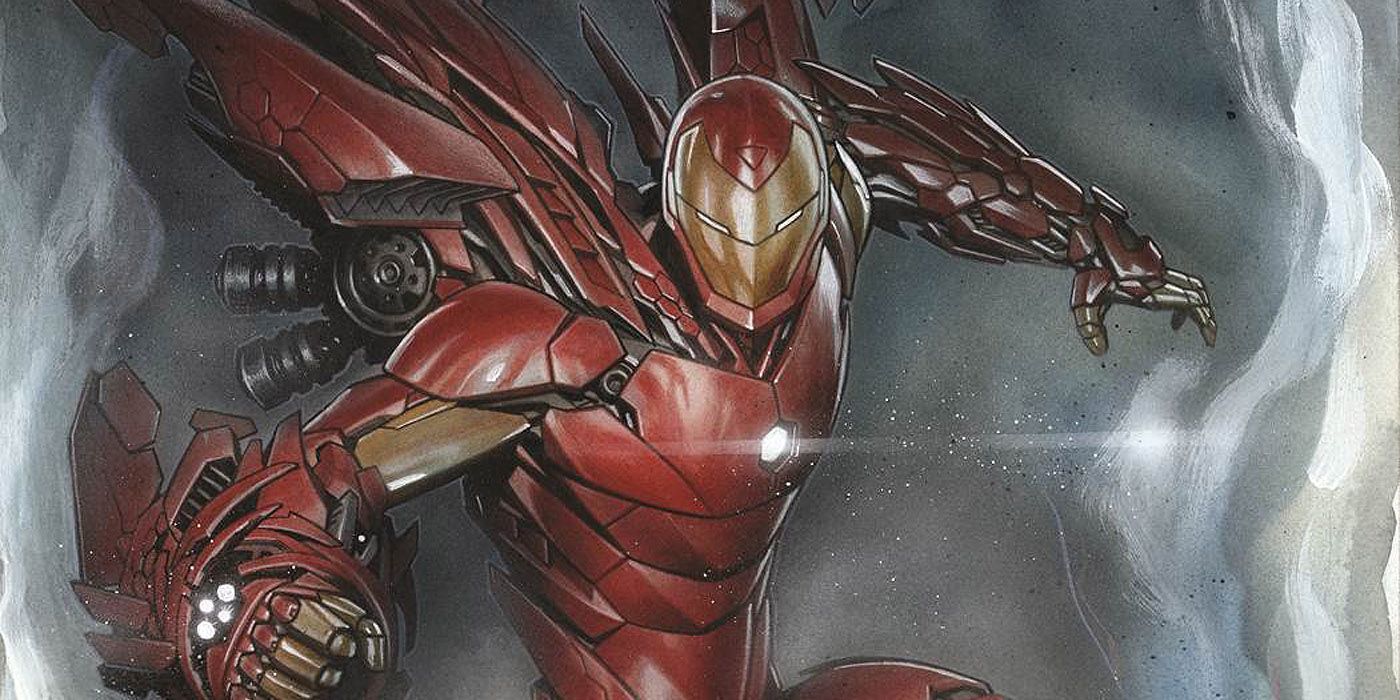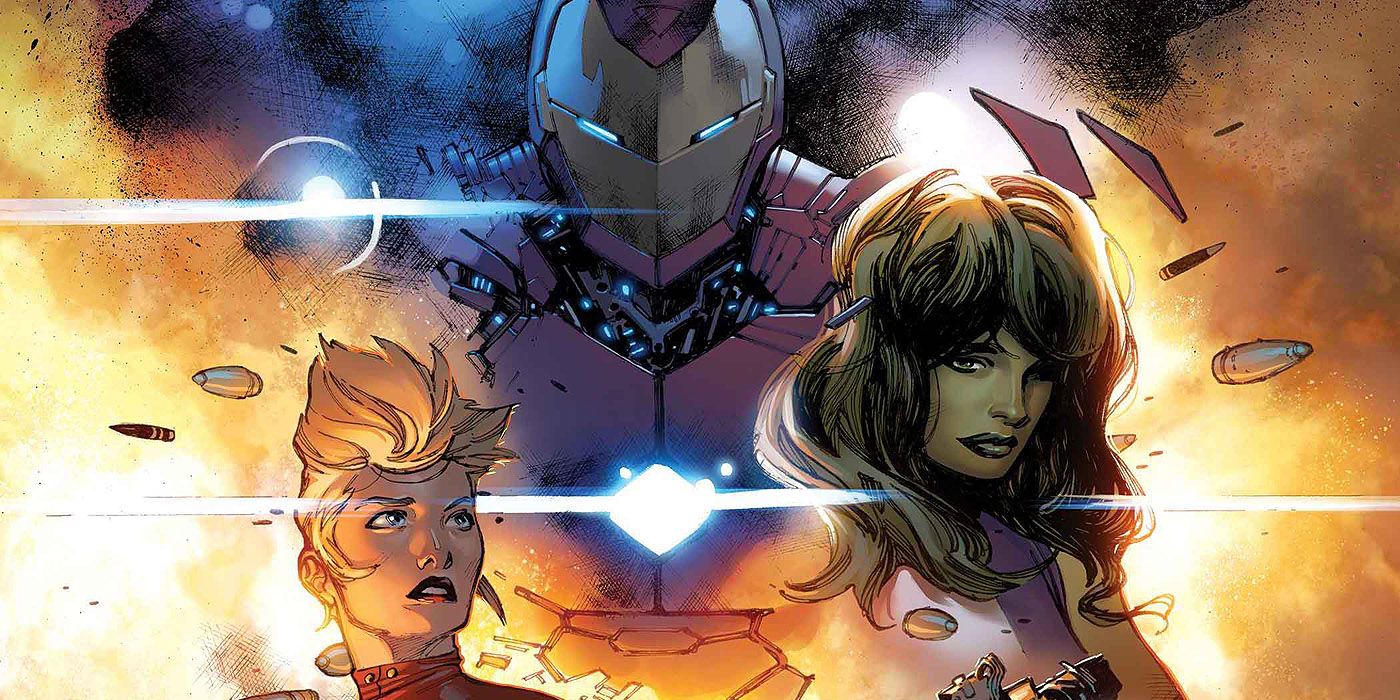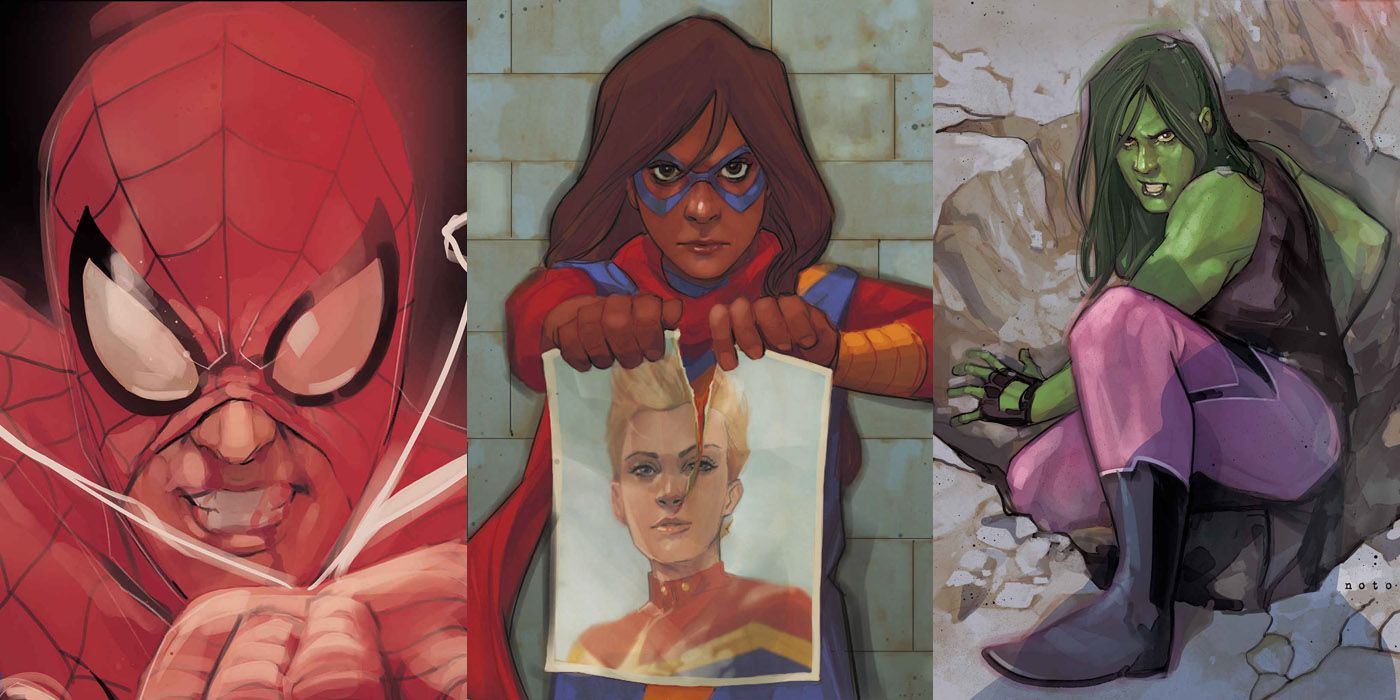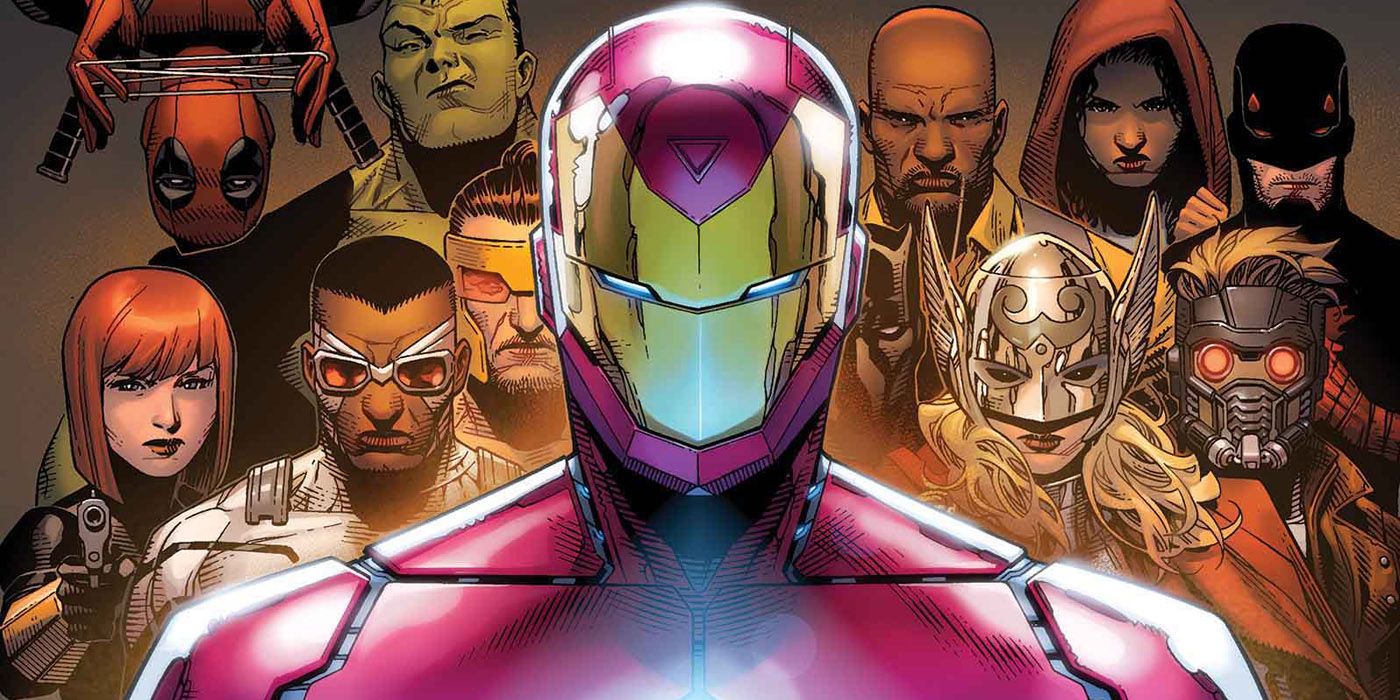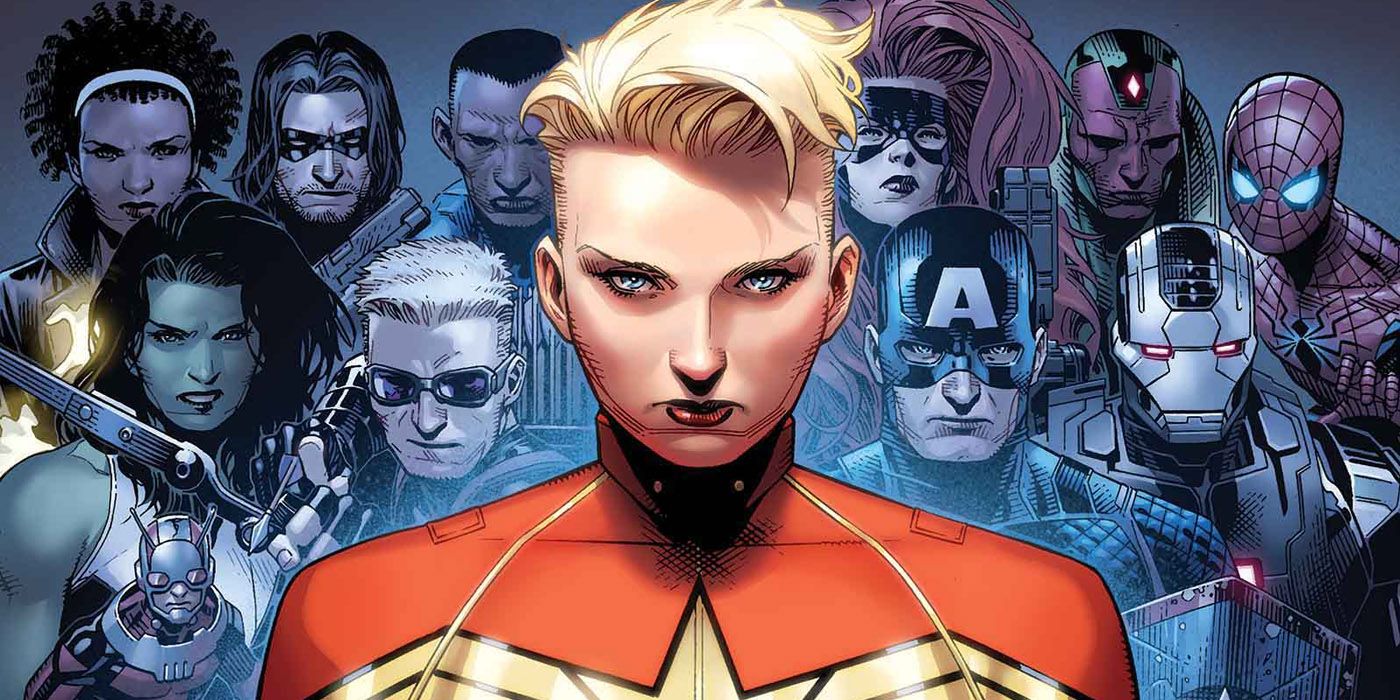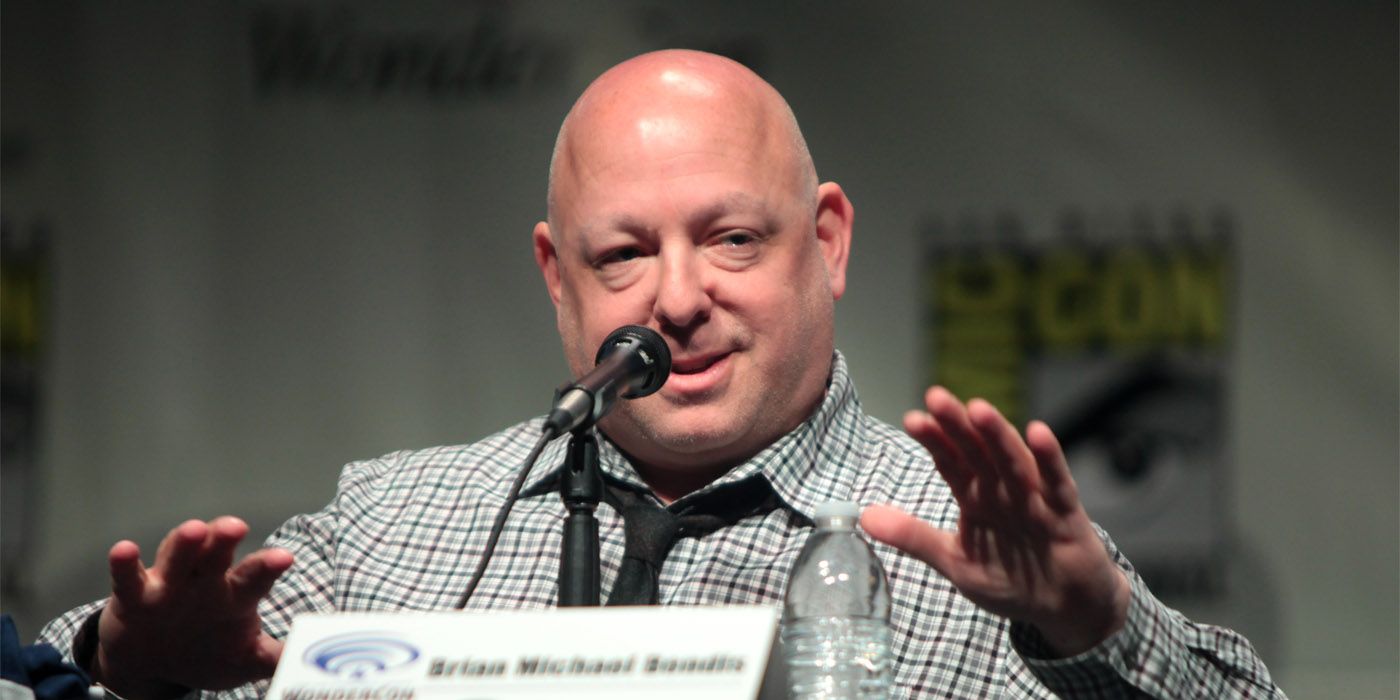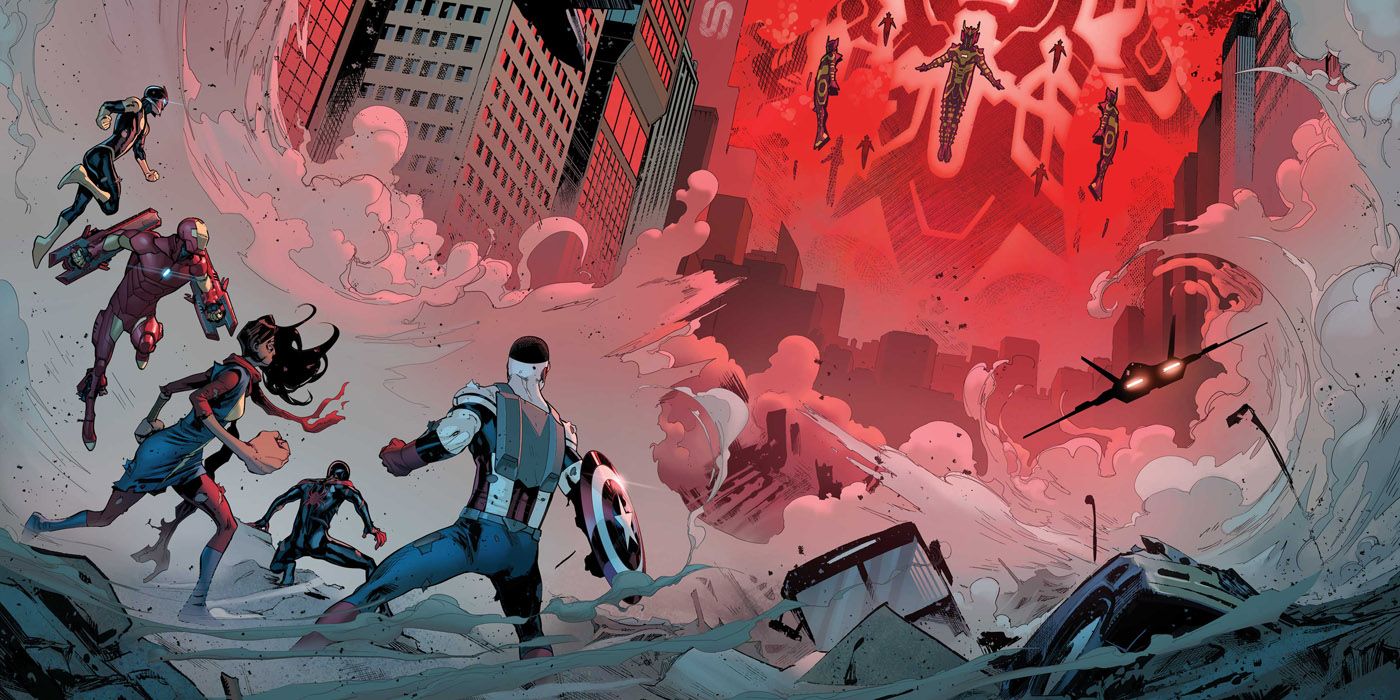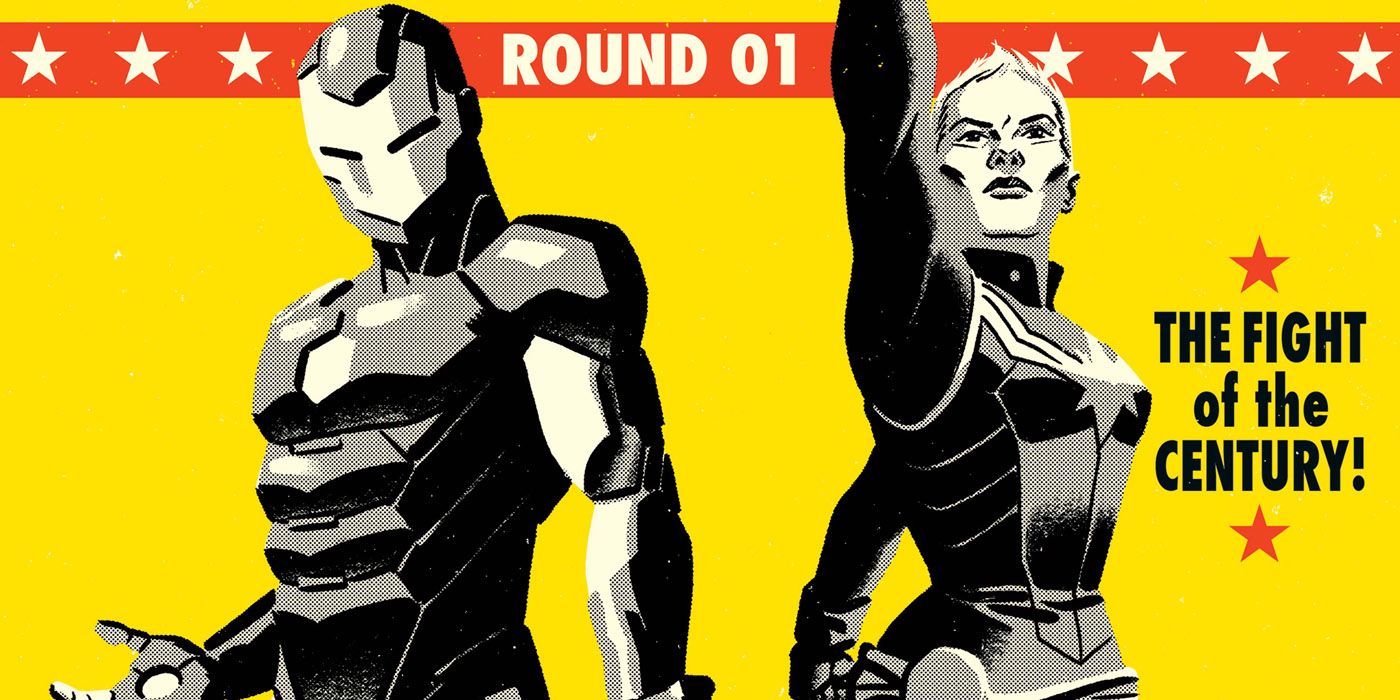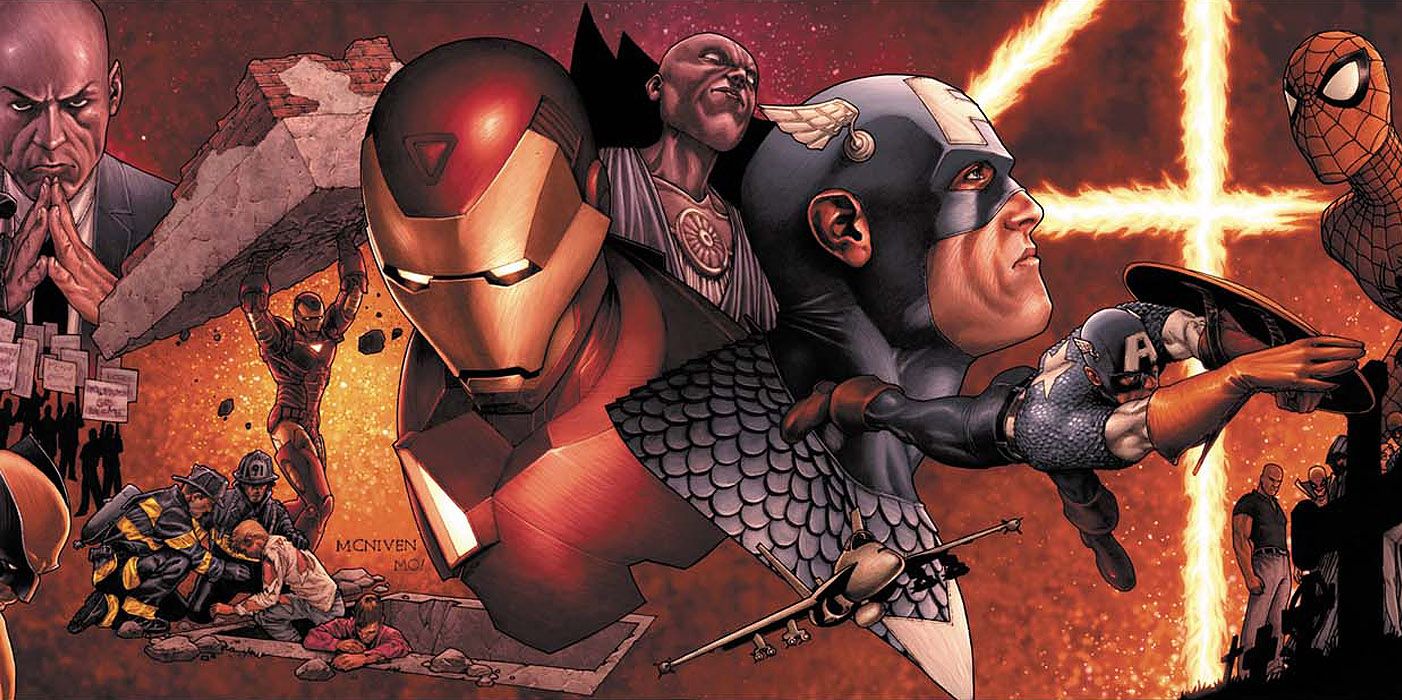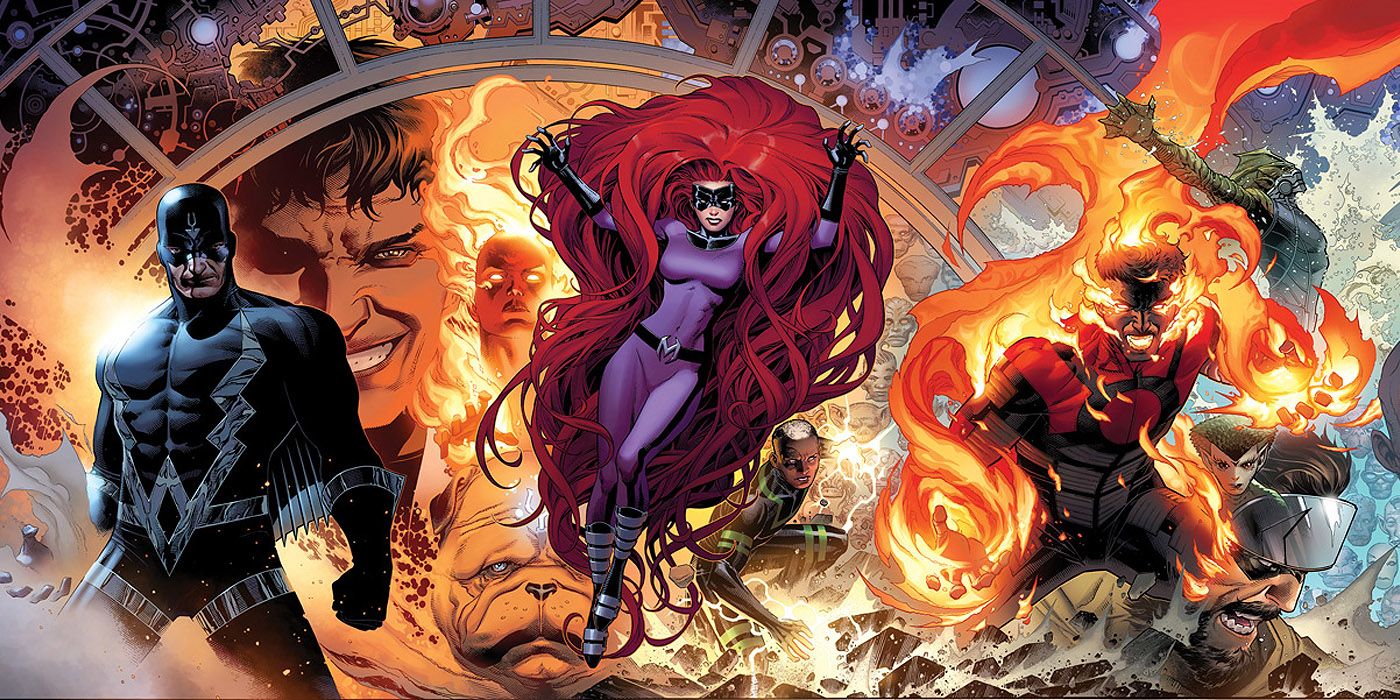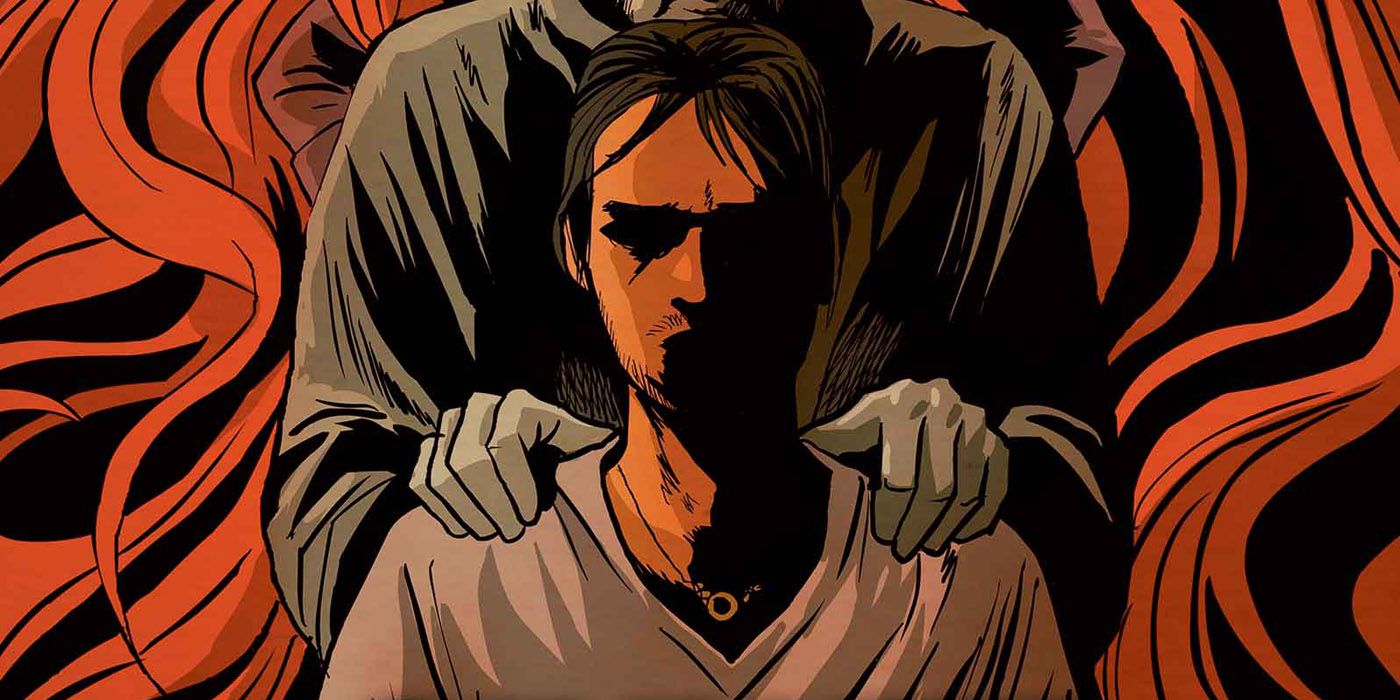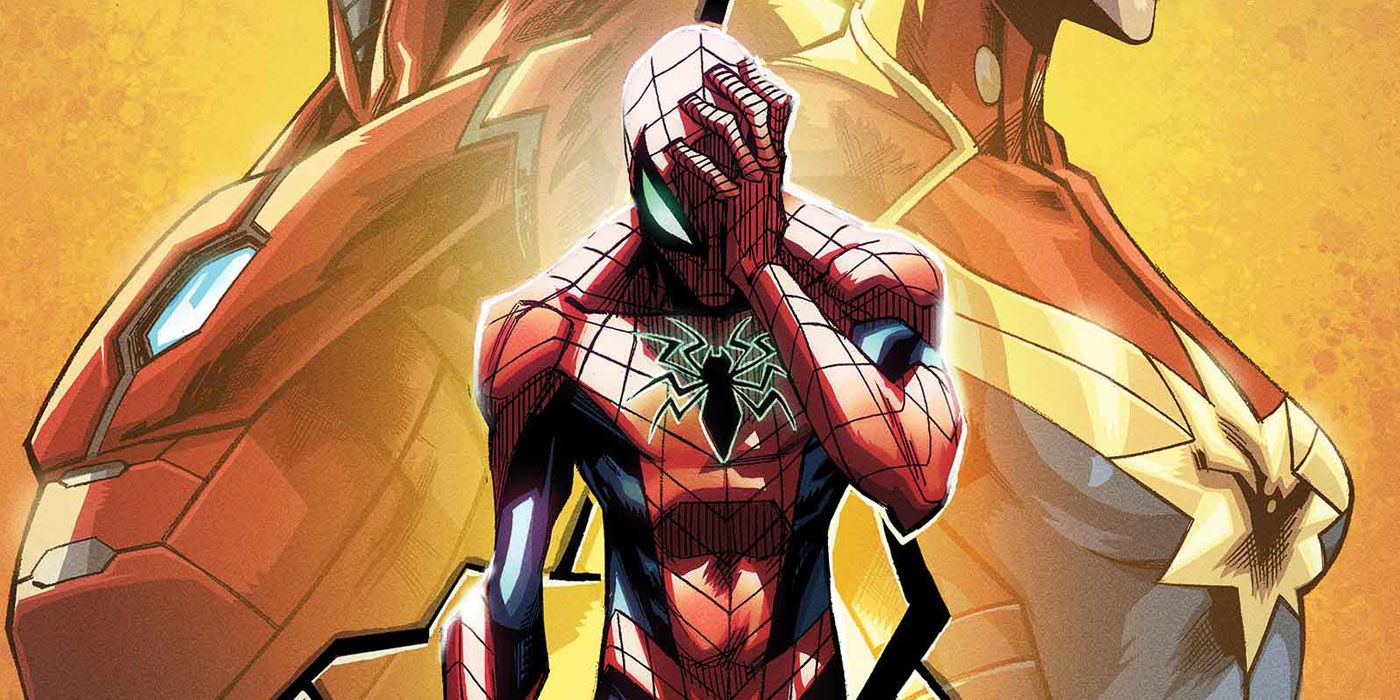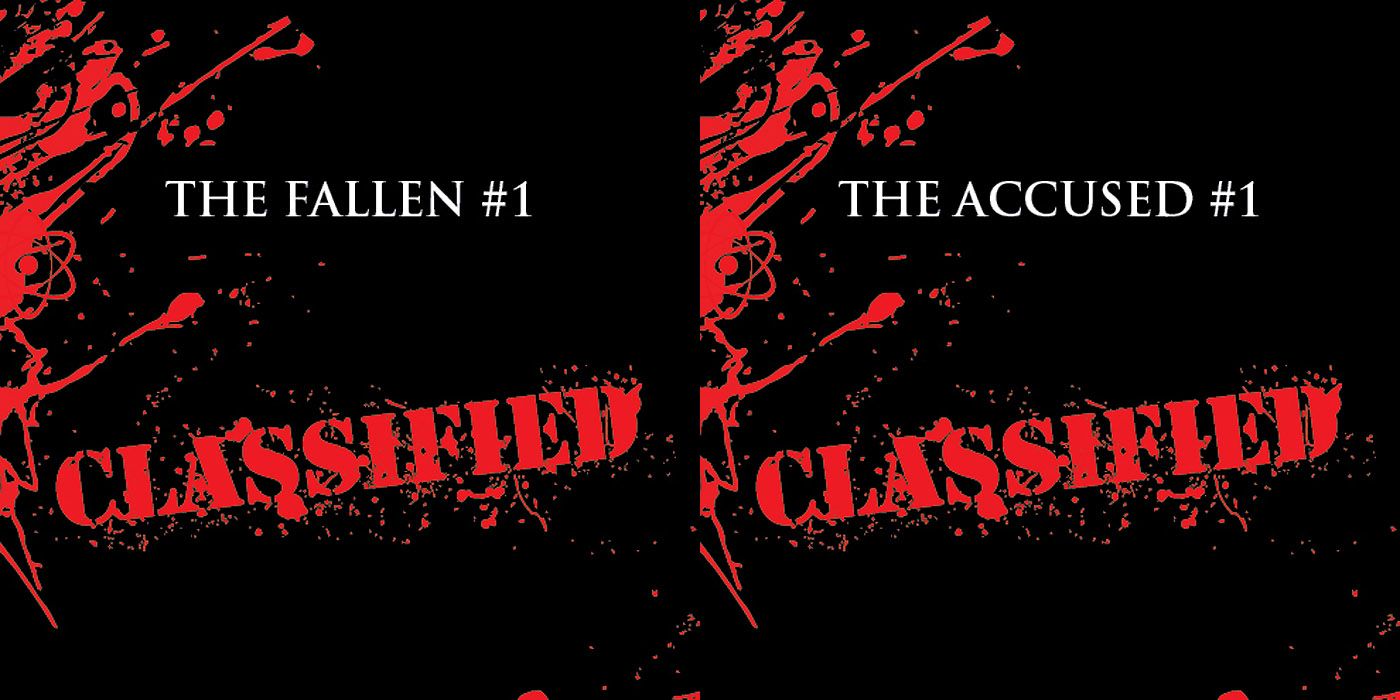If you haven't been paying attention, the Marvel Universe has undergone some changes. Drastic, seismic changes.
Following last year's mega-event Secret Wars, every title in Marvel's catalog started over with a new #1, and nearly every title underwent some kind of change that was aimed at diversity. Prior to Secret Wars, Jane Foster became the new Thor; after, X-23 has taken on the mantle of Wolverine, and Black Bolt went rogue, allowing his lover Medusa to take over as leader of the Inhumans. Speaking of the Inhumans, they've risen to the forefront after a Terrigen Mist cloud was released to roam the Earth, causing new Inhumans to pop up all over the place. The X-Men's Beast and Fantastic Four's Human Torch now work with the them, too.
And that's just for starters. It's been a tumultuous year for Marvel's superheroes, but things are going to get a whole lot crazier before they balance out. Civil War II has officially begun, and it promises to split the superhero community down the middle once more thanks to another divisive, controversial issue. Here's everything you need to know.
What It's About
Civil War II revolves around Ulysses, a recently revealed Inhuman comes to light that can predict events before they happen. He's like the precogs from Minority Report, able to see crimes in advance so that those in authority can stop a would-be criminal before he or she acts.
Much like the ideological debate that framed the first Civil War, this one has an equally difficult quandary for superheroes to wrestle with. Only this one has implications that are more immediate and practical. Should the superhero community use Ulysses' visions to anticipate crimes and attacks, and stop them before they start? Or is the flow of time sacred, so that events should be allowed to unfold as they will?
And what happens when all of this stops being a philosophical discussion? Things always, inevitably get messy...
Captain Marvel's Position
Carol Danvers currently leads a pair of cosmic-focused teams: Alpha Flight, Earth's first line of defense against external threats, and The Ultimates, a team of extremely powerful and resourceful superheroes who proactively seek out potential threats to mankind before they attack. It's that last group that's weighing heavily on Danvers' mind when she learns of Ulysses' existence.
Marvel's writers have worked hard lately to show Carol putting a great deal of stress on her own shoulders about keeping Earth safe. She and the Ultimates recently found a way to "fix" the problem of Galactus by turning him into a positive force in the universe, a "Life Bringer" instead of world devourer. In light of this mindset, it should come as no surprise that Danvers is wholly in favor of using Ulysses' visions to save lives and prevent disasters before they happen.
Does she see the dangers inherent in arresting people before they commit a crime? She claims to, yes. But at the end of the day, she wants to keep humanity safe, and she's willing to use any tool at her disposal to do it.
Iron Man's Position
Tony Stark has recently received a promotion within Marvel's ranks. Where Spider-Man's web-covered mug was once the face of Marvel Comics, Iron Man took his place in 2016, thanks to the popularity of Robert Downey Jr.'s big screen portrayal.
So it should come as no surprise that, as in the first Civil War, Tony is a major player with a strong opinion on whether or not the future should be tampered with. He sees nothing but danger in Ulysses' visions, and believes that acting on them is tantamount to playing God. It's a surprising position from the self-proclaimed "futurist," but in the context of the story, it makes sense.
Tony argues that stopping a major global threat is one thing, but what will the superheroes become when these predictions are taken too far? Do they take action to prevent bad things from happening at any cost? What if the actions they take to stop a prediction from coming true causes something even worse? He has a valid point, but it's easy to see Captain Marvel's desire to protect the innocent as well.
What Came Before
Do you have to read every comic that leads into Civil War II to understand it? Absolutely not. The series is written in an inclusive way that even people who've never read a comic book before can pick it up and find it accessible. That said, there are some books that will fill in finer points and backstories that you may find worth your time.
Marvel's Free Comic Book Day issue provides the full story of a fight that's skimmed over in Civil War II #1, so it's definitely worth reading. In fact, it could be incorporated seamlessly right into the middle of issue #1; that's how integral it is. There's also a prequel, an issue #0, that tells of events leading up to the first issue. Some of it feels very much like filler, with some inconsequential goings-on for She-Hulk and War Machine. But Captain Marvel's scenes help further justify her position in the main series, and you even get to see Ulysses receive his precognitive abilities from the Terrigen cloud.
A number of other ongoing series have released issues under a banner called "The Road to Civil War II." None of these are essential reading, but fans of the characters involved may want to pick up those issues. They include:
- Invincible Iron Man #7 - #11
- All-New Wolverine #8 and #9
- Ms. Marvel #7
- The Ultimates #7
Choosing Sides
A special tie-in miniseries called Civil War II: Choosing Sides will feature the heroes of the Marvel universe grappling with the difficult decision of which side to support. It can be fully expected that some heroes will sign up on one side, only to jump to the other side after seeing events go from potential to reality. It should be interesting to see who picks which side and what their reasons are.
Most importantly: there is no right or wrong side. There's no "good guy vs. bad guy" thing happening here, which is what makes Civil War II a true successor to Civil War. The CW brand, for lack of a better term, is shaping up to be the banner under which Marvel explores major, controversial issues in society.
There will be some who, having been burned by the first Civil War, refuse to pick a side. Marvel has strongly hinted that Spider-Man (Peter Parker) will be among them.
Who's on Iron Man's Side?
Based on the first issue, so far no one is on Team Stark except Tony himself. But when a major tragedy occurs towards the end of #1, it sets the stage for opinions to take a big turn. Beyond that, we can only speculate at who's signing up with who.
Preview artwork that's been released by Marvel indicates that Kamala Khan, aka Ms. Marvel, is going to join Tony's team and oppose Captain Marvel, aka the original Ms. Marvel. This is a huge deal regardless of who else joins with Iron Man, because Kamala has always held up Carol Danvers as her idol and mentor. For her to take a position that goes against Carol is going to generate some big drama.
If the cover of the tie-in comic Civil War II: Choosing Sides #1 is to be trusted (and there's no guarantee that it is, it's not like covers are always honest about a book's contents), it looks like Iron Man will successfully recruit Black Widow, Captain America (Sam Wilson), Hercules, Thor (Jane Foster), Black Panther, Star-Lord, Deadpool, Hulk (Amadeus Cho), Luke Cage, America Chavez, and Daredevil.
Who's on Captain Marvel's Side?
Captain Marvel's goal of using an advanced warning system to predict future events sounds very smart on paper. It's a perspective guaranteed to attract many of Marvel's most proactive heroes. Issue #1 finds pretty much everyone but Tony Stark rallying around Ulysses and his helpful new ability, since he first comes to light after his power helps the entire superhero community overcome a massive threat to Earth.
This rah-rah support for Carol's cause won't last. But many of her staunchest friends and allies are likely to stay the course.
The cover to Civil War II: Choosing Sides #1 suggests that Carol's team will include Spectrum (Monica Rambeau), Winter Soldier, Blue Marvel, Medusa (will the rest of the Inhumans likely falling in line behind her), Vision, She-Hulk, Ant-Man, Hawkeye, Captain America (Steve Rogers), and War Machine. As we mentioned before, this cover could be misleading, so take it all with a grain of salt. Spider-Man is also shown to be on Captain Marvel's team here, though it's expected that he will probably remain primarily neutral.
Who's Writing It?
Civil War II is being crafted by the exact same team that's responsible for the current Invincible Iron Man series.
Brian Michael Bendis is Civil War II's writer. Bendis is known for strong character work, surprising twists, and snappy dialogue — and lots of it. Most importantly, he's a master of making his plots unfold in a character-driven way. In other words, events unfold not because the plot requires them to, but because of the authentic choices and reactions his characters have to their circumstances.
Bendis is known for a number of fan-favorite comics like Ultimate Spider-Man, New Avengers, Alias, Daredevil, House of M, Secret Invasion, and countless others. Outside of Marvel, he created the long-running indie title Powers with Michael Avon Oeming, Jinx, and many more. He created or co-created a litanny characters that include Miles Morales, Jessica Jones, Maria Hill, Daisy Johnson (currently featured on Agents of S.H.I.E.L.D.), Layla Miller, and more.
Who's Creating the Art?
Artist David Marquez is responsible for the pencils and inks. Marquez is known for crisp, precise artwork that's equally impressive with bombastic action sequences as it is with characters' emotive facial expressions. After cutting his teeth on the indie comic Syndrome for publisher Archaia, he was quickly snatched up by Marvel and put to work on titles like Secret Warriors and Fantastic Four. He soon found himself working on Ultimate Comics Spider-Man with writer Brian Michael Bendis, birthing a collaboration that would carry them through Invincible Iron Man and now to Civil War II.
Colorist Justin Ponsor is a Marvel favorite, capable of beautifully vivid colors with high contrasts that bring to life the pencils and inks of an incredible number of artists. Ponsor's colors can be seen in an incredible body of work that includes Invincible Iron Man, Amazing Spider-Man, Avengers, Marvel's Star Wars, Wolverine, Captain America, Ultimate End, Mark Millar's original Old Man Logan series, Young Avengers, Original Sin, Uncanny X-Men, and many more.
Allegory
The original Civil War was inspired by real-world issues, specifically the War on Terror in the wake of 9/11, and sacrificing freedoms in the name of security. The Superhuman Registration Act was an exaggerated, superhero take on the Patriot Act.
According to Bendis, the concept for Civil War II arose out of similar ripped-from-the-headlines issues from today. It came to him during a conversation he was having with Marvel Editor-in-Chief Axel Alonso about "personal accountability and profiling and how people are shocked that their internet behavior has a price." In particular, they zeroed-in on the notion of racial profiling by police. Superheroes are the police of the Marvel universe, after all, so it became a question of how to translate profiling into the superhero world.
The notion of a precog character was a smart solution, because it allows the heroes to consider the notion of arresting people before they commit a crime. Is that not exactly what profiling is? Yet if the heroes hadn't taken Ulysses seriously, the threat at the outset of issue #1 would have ended the Earth. It's a very sticky situation with no simple answers — and that's just the way Marvel likes it.
Differences From the First Civil War
In the minds of readers, the original Civil War is a well-defined moment in Marvel history. It incorporated a number of major new elements and big twists that are unforgettable. How Civil War II will attempt to match or exceed its impact is at the moment unknown, but the publisher is smart enough to ensure that the series lives up to its namesake.
Probably the defining moment of Civil War was when Spider-Man publicly revealed his secret identity. It was a landmark for both the character, who'd closely guarded that secret from his beginning, and the series, where it gave Tony Stark his first major victory in the conflict, and helped hammer home his point that some freedoms are worth sacrificing to maintain public security and support.
Other major elements include the clone of Thor, the "Project 42" prison for unregistered superheroes in the Negative Zone, and the aspect that one side of the conflict was operating outside the law. None of these elements will recur in the new series, but will there be moments of equal significance? Almost certainly.
There's also the question of what Steve Rogers will do this time around. Since he's not leading one of the opposing teams, and he remembers the original war and its consequences all too well, it's likely he'll spend most of this one trying to bring the conflict to a peaceful end.
Lastly, the first Civil War ended with a winner. Iron Man won and Captain America was sent to jail (before being assassinated). Will Civil War II have a clear-cut winner and loser? And in a conflict where there are no laws to abide by or violate, what does winning and losing even mean? We'll have to wait and see.
The Inhumans Problem
Okay, a quick history lesson: In 2000, 20th Century Fox released X-Men, one of the first major superhero films of the modern age. It was a success, birthing a film franchise that's still going strong today and helping redefine a genre that some would say has stagnated. Eventually, Marvel itself launched its own film division, Marvel Studios, and began its now-famous "connected universe" plan revolving around the Avengers. When Marvel became a Hollywood power to be reckoned with, the studio decided that it sure would be nice to have the X-Men — one of its crown jewels — back in its own hands. But Fox wasn't interested in giving up a profitable property (understandably so).
Here's where things get dicey. No one at Marvel or its parent company Disney will confirm or even discuss this, but it's widely believed that a mandate came down from Mickey Mouse that since Fox wouldn't give back the X-Men film rights, maybe Marvel could kinda sorta lower the importance of mutants in the source material — the comic books. At the same time, Marvel Studios was making plans to launch its own X-Men-like franchise based on another subset of superheroes with biological differences, the Inhumans. It was around this time that the Terrigen Mist cloud was released in the comics and the Inhuman population exploded. And entirely coincidentally, that same cloud just happens to kill mutants.
The problem with the Inhumans is that until recently, they've been background players in the Marvel universe. And as such... well...they're just not that interesting. They don't have anywhere near as much history to build on as the X-Men, nor do they have any iconic, popular characters like Wolverine, Gambit, Deadpool, Nightcrawler, Jean Grey, Cyclops, and so on. Ask most readers to name their five favorite Inhumans and they'd probably have trouble coming up with five total.
Can Civil War II help readers care about the Inhumans more? It's got to be one of the top items on Marvel's to-do list if they want readers to stop feeling like the Inhumans are being shoved down our throats.
Who is Ulysses?
Very little is known about the new Inhuman Ulysses, who plays the central role in Civil War II. We don't even know his last name. But "Ulysses" is his real first name, not a code name. (Most Inhumans don't use superhero-y codenames.)
Prior to becoming an Inhuman, he was a student at Ohio State University. (You can see the Terrigen Mist cloud come to OSU in Civil War II #0.) When the visions began and he was finding himself lost in them, the Inhumans somehow found him and he was taken in by the royal family, aka Medusa.
His powers are still being explored and defined, but as he describes it, Ulysses doesn't merely "see" his visions, he "experiences" them. It's depicted as though his body is transported into the future so that he's fully immersed in the sights, sounds, smells, and physical feel of events to come. The visions come mostly at random, but the Inhuman Karnak has been helping Ulysses learn to control them. In the first issue, Jean Grey discovers an additional quirk to his mental physiology, but that's probably a spoiler so we've leave that to you to discover.
More details about Ulysses and how his power works are yet to be revealed.
Tie-In Comics
There are more than eighty comic book issues that tie in to the events of Civil War II. That's more than even Marvel expects anyone to read, so the strategy here appears to be to provide "something for everyone."
If you already read any of the ongoing series that have tie-in issues, there's no reason to skip these specials, as they'll continue their respective stories while providing added adventures and context for Civil War II. But if you're considering jumping on board with some added titles for this event, then at the top of your list should be Civil War II: Choosing Sides. Each issue in this six-part series will feature three stories where three different Marvel superheroes will wrestle with the decision of which side to back in the conflict. Look for stories starring the likes of Nick Fury, Night Thrasher, Jessica Jones, War Machine, Punisher, and more.
You'll also want to pick up the one-shots Civil War II: The Fallen and Civil War II: The Accused. It's believed that a major death will rock the Marvel universe around the middle of the main series (see below), so these two issues are likely to address the deceased and the person or persons responsible for their death, respectively. A three-part digital miniseries called Civil War II: Ulysses promises to provide more details on this all-important new character and his history.
Aside from that, you'll find tie-ins from just about every character on Marvel's roster. Spider-Man, Wolverine, both Captain Americas, the X-Men, the Inhumans, Hulk, Avengers, Deadpool, and so many more.
Life and Death
No major comics crossover event is complete without at least one major death. It helps hammer home the permanence of the changes it brings — even though no one ever stays dead in comics. The original Civil War saw the death of a hero named Goliath, who had the same powers as Giant-Man. (A number of third-tier heroes died in the inciting incident, but since they caused the incident, no one really bothered to mourn them.) And then Steve Rogers died in the aftermath, which was inarguably the most impactful event in the series.
Issue #1 features the shocking death of a longtime superhero (hint: this character also appears in Marvel's movies), and the possible death of another. That second one is left unresolved, so we'll call it a cliffhanger for now. What happens to both of these characters only helps to solidify and strengthen the positions held by Iron Man and Captain Marvel, convincing them both that they are absolutely in the right.
Rumor has it that another major death will occur by the end of issue #3. Who might that be? It would probably be easier to point out who it won't be. Steve Rogers will certainly survive, given the controversial bombshell recently revealed about him that will lead to new stories for months, if not years, to come. Tony Stark is Marvel's most popular character, so there's no chance he's going away. Peter Parker is still a major player, though losing him would certainly be a huge shock — and further solidify Miles Morales' place as the new Spider-Man.
---
Who do you think will die in Civil War II? How many of the tie-ins will you be following? Let us know in the comments.

